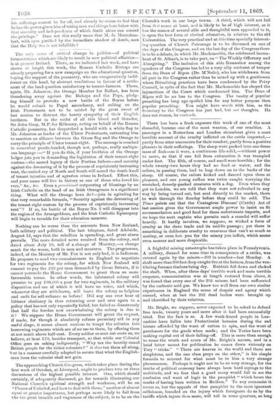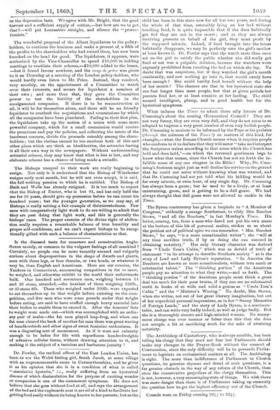Mr. Bright, we suppose, never expected to be asked to
defend free trade, twenty years and more after it had been successfully tried. But the fact is so. A few weak-kneed people in Lan- cashire have fallen into Protectionist heresies during the sad leisure afforded by the want of cotton to spin, and the want of purchasers for the goods when made ; and the Tories have been making capital out of their falling-off. This is more than enough to rouse the wrath and scorn of Mr. Bright's nature, and in a brief letter meant for publication he comes down viciously on Tory "tricks." "There are knaves in the world and there are simpletons, and the one class preys on the other," is his simple formula to account for what must be to him a very strange phenomenon. Perhaps it ought not to be so very strange, for the truths of political economy have always been hard sayings to the multitude, and we fear that a good many would fail to see the confusion and want of logic in the pamphlet "which bears the marks of having been written in Bedlam." To any economist it seems so, but the appeals of that pamphlet to the most ignorant selfishness, founded on the injury which foreigners do us by the tariffs which injure them more, will tell in some quarters, so long
as the depression lasts. We agree with Mr. Bright, that the good harvest and a sufficient supply of cotton,—but how are we to get that?—will put Lancashire straight, and silence the "protec- tionists."































 Previous page
Previous page